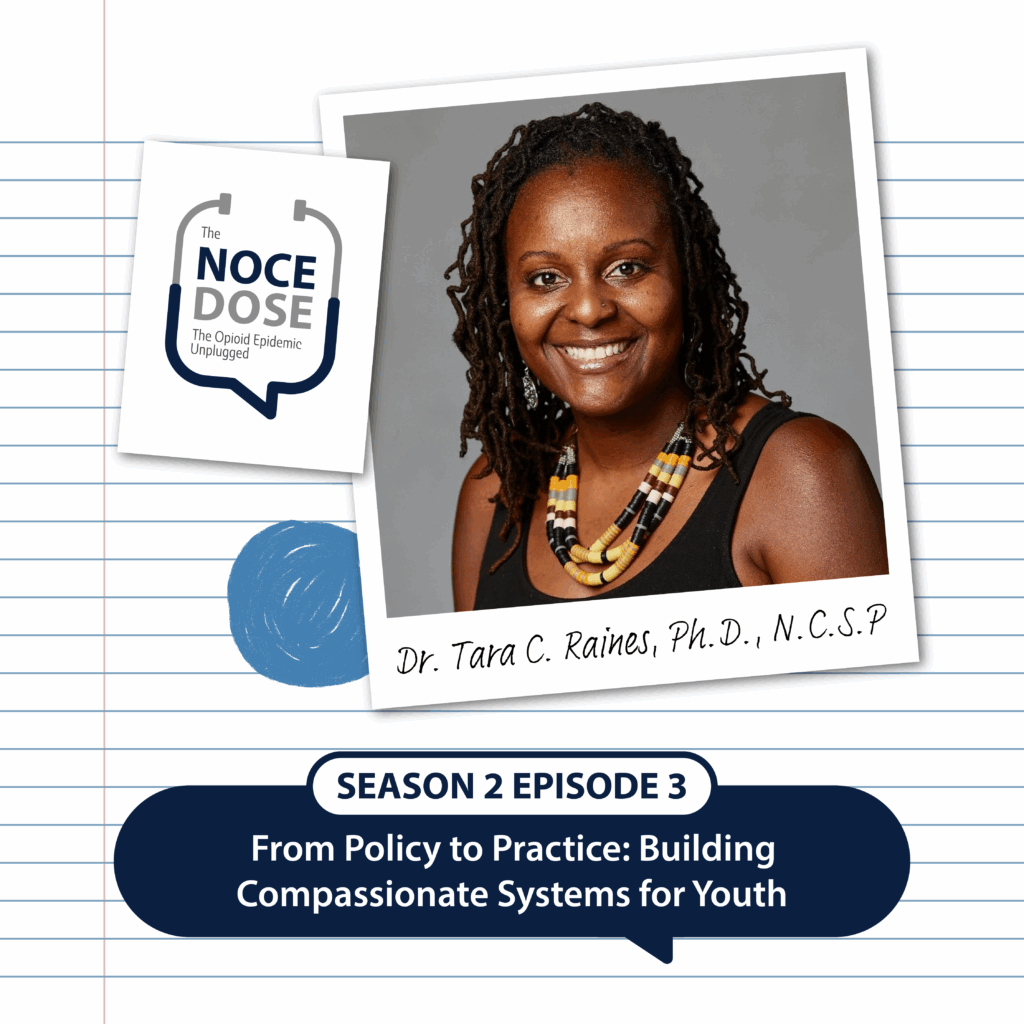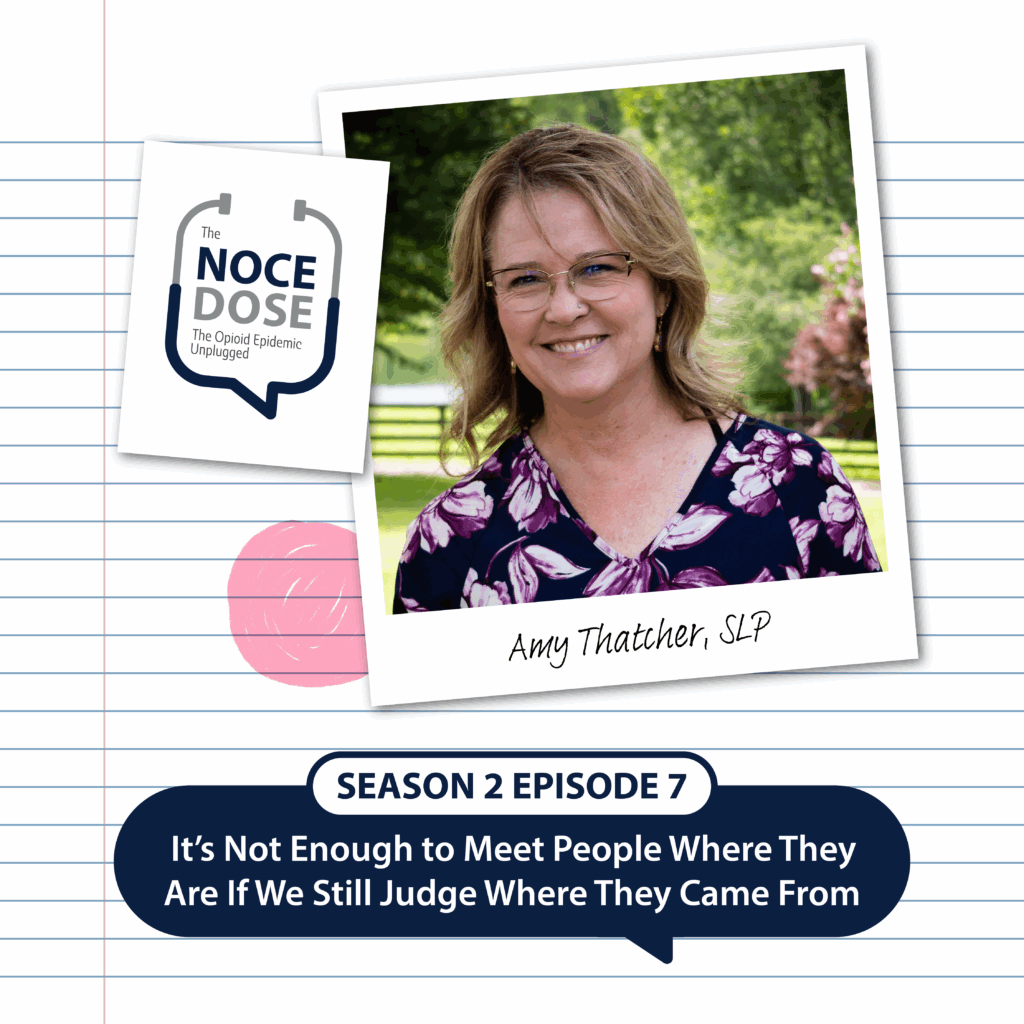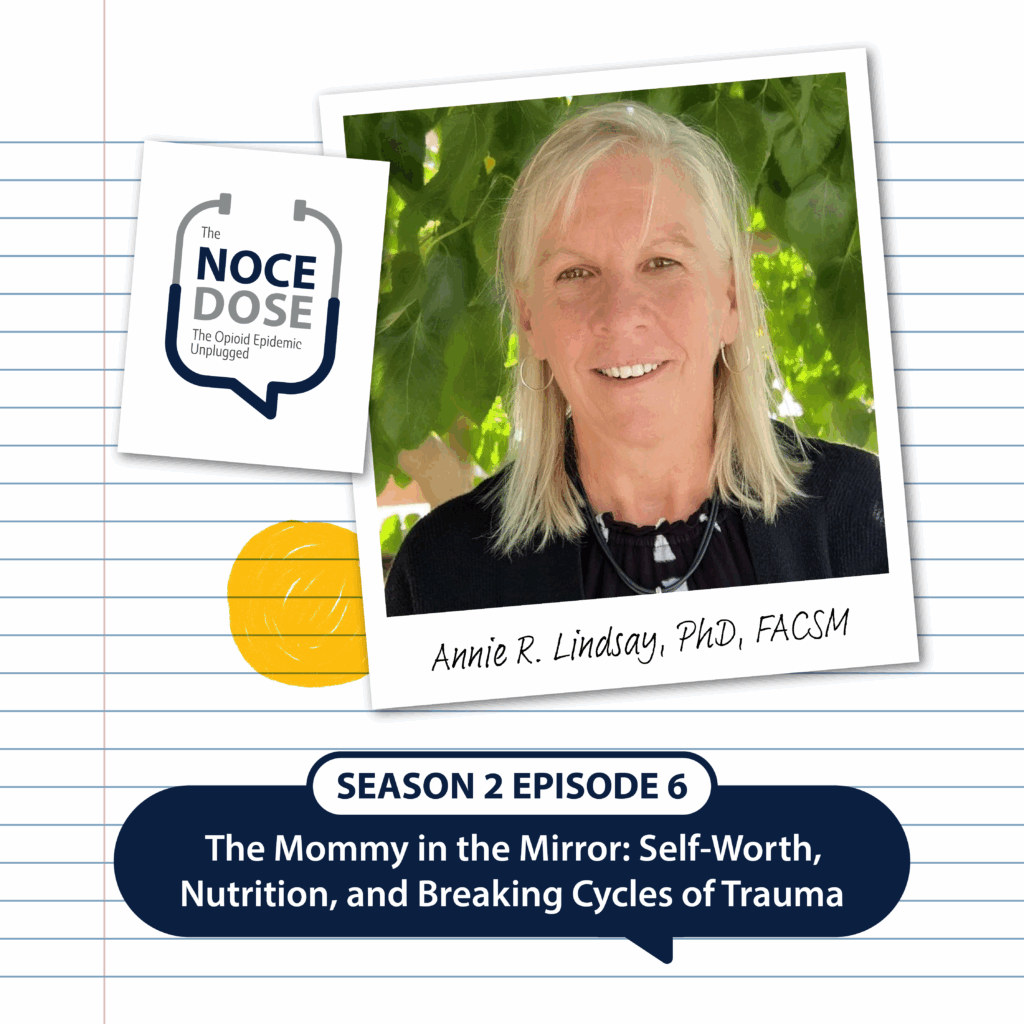In this episode of The NOCE Dose, host Bianca D. McCall, LMFT sits down with Dr. Tara C. Raines, Ph.D., N.C.S.P., a passionate advocate for youth mental health and community empowerment. Together, they explore how the opioid crisis impacts children, families, and educators—and how compassion, advocacy, and education can inspire systemic change. Dr. Raines shares insights on the importance of understanding the “why” behind student behaviors, the power of lived experience in shaping interventions, and the role of legislative wins in expanding access to mental health services. This heartfelt conversation emphasizes that healing begins in community—through empathy, collaboration, and the courage to take action for the next generation.
Dr. Tara C. Raines, Ph.D., N.C.S.P
Dr. Tara Raines is Senior Director for Child Behavioral Health Dissemination at the Ballmer Institute where she is working to establish a workforce that is trained in behavioral health prevention and promotion at the undergraduate level. She is the former Deputy Director of the Children’s Advocacy Alliance of Nevada, a nonpartisan organization working to improve outcomes for Nevada’s most vulnerable youth. A school psychologist by training, Dr. Raines brings deep expertise in early identification of behavioral and emotional risk, especially in school-aged children, and how unaddressed needs can lead to involvement with the juvenile justice system. She previously served as Associate Professor and Director of Clinical Training in the Child, Family, and School Psychology program at the University of Denver, and as Assistant Professor at UNLV. Her research, supported by the Institute of Education Sciences, focused on universal screening for emotional and behavioral disorders in large, diverse school districts, with a particular interest in school-based pathways to incarceration. Dr. Raines advocates for healing-centered approaches to trauma, culturally responsive care, and increased access to services for families affected by systemic inequities, including the intergenerational impacts of the opioid epidemic. Dr. Raines is nationally recognized for her leadership in antiracist practice, police-in-schools reform, and bilingual workforce development in mental health and education




